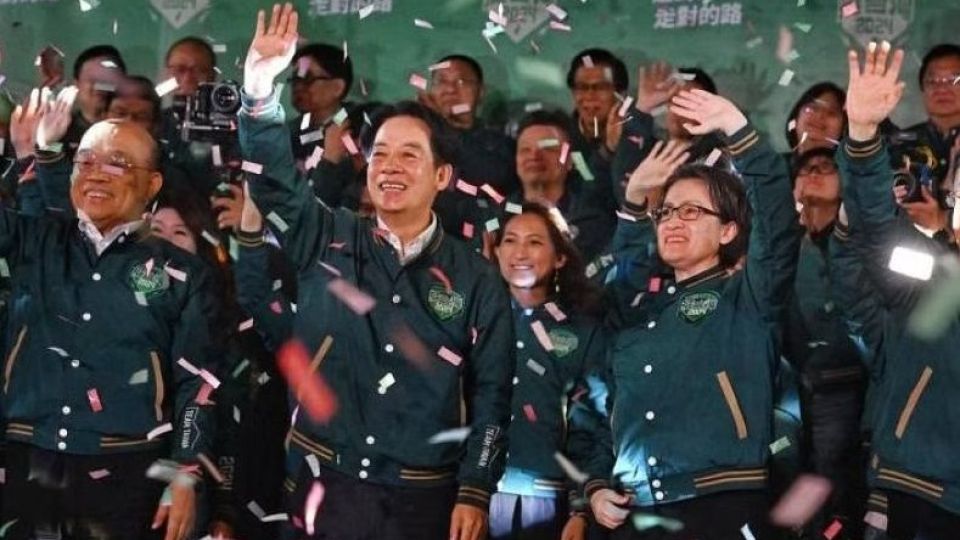January 23, 2024
MANILA – Over a century ago, Sir Halford John Mackinder, a renowned geographer, asserted that whoever controls Eurasia (“The Heartland”) controls the world. Today, one could argue that whoever controls Taiwan controls the world economy. Taiwan alone is responsible for close to half of the world’s total semiconductor production and, even more impressively, more than 90 percent of the most high-end varieties.
The Taiwan Semiconductor Manufacturing Co. Limited is arguably just as important to the 21st-century high-tech global economy as Saudi Arabia was to the 20th-century oil-driven global economy. Without Taiwan-made semiconductors, you practically can’t run most of the new-generation computers, cellphones, cars, and, crucially, weapons systems. And this is precisely why the fate of the self-ruling island nation is a matter of global interest.
For a conspiracy of factors, however, Philippine-Taiwan relations have been generally tepid, if not troubled, over the past decade. Throughout my conversations with top Taiwanese officials over the years, including presidents Ma Ying-jeou and Tsai Ing-wen, I couldn’t help but notice the paucity of strategic communications between our two nations.
Almost all nations in the Indo-Pacific region adhere to a “One China” policy, but we differ in terms of operationalizing it. Many of our neighbors have actively courted large-scale Taiwanese investments, while others have gone a step further by even exploring intimate strategic ties. Singapore, for instance, has had regular joint military exercises with Taiwan.
In contrast, we rarely appoint professional diplomats to run our de facto embassy in Taipei. Instead, that prized yet tricky office often goes to politically connected businessmen and political appointees. Another complicating factor is maritime tensions, most notably when a Taiwanese fisherman was killed by Philippine Coast Guard forces in 2013 — sparking a major diplomatic crisis that imperiled the welfare of hundreds of thousands of Filipinos working in the self-ruling island nation.
As if that weren’t enough, Taipei also doesn’t recognize the 2016 arbitral tribunal award, which ruled the Taiwan-occupied Itu Aba as a “rock” incapable of generating its own exclusive economic zone in the Spratlys.
Against this backdrop, President Marcos’ unprecedented greeting of his new Taiwanese counterpart was no trivial matter. Our President explicitly congratulated Lai Ching-te on his election as “Taiwan’s next president,” thus effectively reaffirming the self-ruling island nation’s democratic sovereignty.
It didn’t take long before Lai returned the favor by underscoring how he “deeply value[s] the enduring friendship” between our two nations. He also emphasized the need for “enhancing our economic and people-to-people ties” as well as “championing democracy, peace, and prosperity in the region.”
MIAA suspends 2 airport cops who passed through Edsa bus lane | INQToday MIAA suspends 2 airport cops who passed through Edsa bus lane | INQToday
As a geopolitically literate leader, Mr. Marcos understands the peculiar significance of Taiwan for the Philippines on two levels. First, geography shapes foreign policy. As someone from Ilocos Norte, Mr. Marcos knows a thing or two about how close Taiwan is to our northernmost provinces. Taipei is closer to Manila than any Southeast Asian capital, while Taiwan’s southern territories are barely 100 kilometers away from our northernmost base in Mavulis.
Second, our President also recognizes that allies can’t be neutral, either ahead of an impending conflict or during an all-out war. By all indications, the United States, our treaty ally, has made it clear that it won’t sit idly by in the event of a Chinese invasion of Taiwan. And other US allies, especially Japan but also Australia, have indicated their inevitable involvement in any US-led countermeasure against China.
In short, a coalition of democratic nations — from Japan in the north to the US in the east and Australia in the south — are making sure that instead of Taiwan fearing becoming a “Ukraine 2.0,” it should be Chinese leaders who should fear turning into a “Putin 2.0” in an event of total war.
By all indications, Mr. Marcos is not only looking at closer economic ties with Taiwan, particularly in the realm of semiconductors and high-quality manufacturing, but also proactively deterring any cataclysmic conflict in the region. Thus, his efforts to calibrate our alliance with the US in such a way that reinforces “integrated deterrence” against any Chinese kinetic action.


